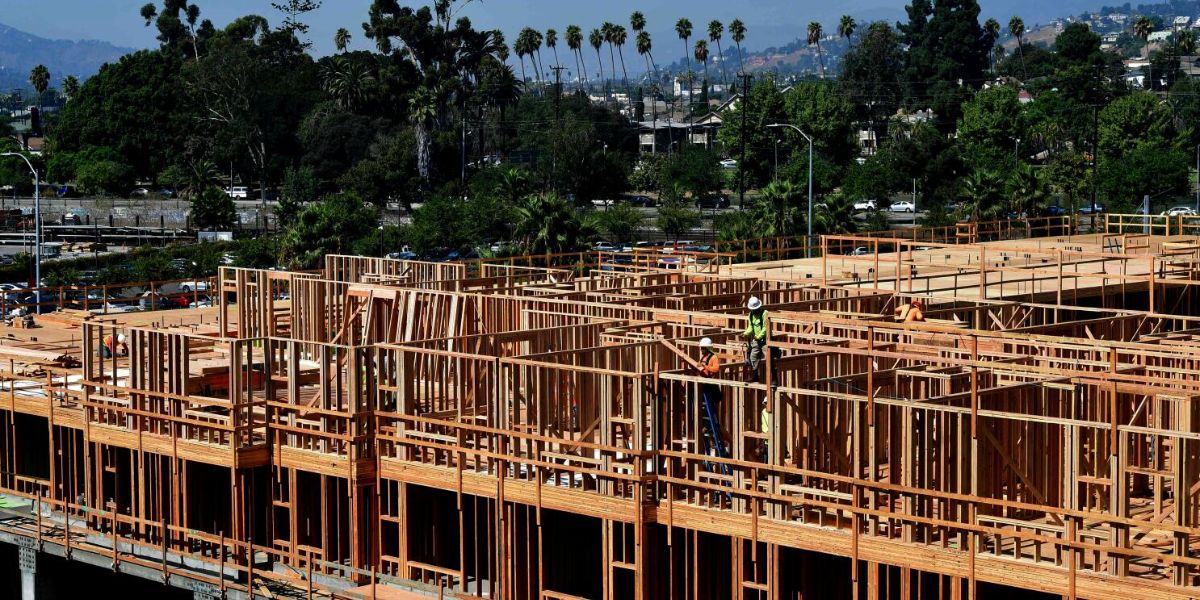“How expensive?” tracks measurements of California’s totally unaffordable housing market.
The pain: Slightly more than half of California tenants pay 30% or more of their income for housing costs, compared with roughly one-third of homeowners.
The source: My trusty spreadsheet looked at the latest Census Bureau stats tracking household housing expenses in 2023. Anyone paying 30% or more of their income for a roof over one’s head can be seen as having a housing-cost burden. We noted a large gap in this yardstick of financial pain between renters and those who own – combining owners with a mortgage and those with no home loans.
The pinch
Last year, 56% of California renters spent 30% or more of income on housing costs, the fifth-highest share among the states.
Meanwhile, 35% of California homeowners were similarly burdened – No. 2 nationwide.
This is not just California: Nationally, 52% of renters faced such budget stresses vs. 25% of owners.
Pressure points
The No. 1 state for burdened renters was Florida at 62%. Then came Nevada at 57%, Hawaii at 57% and Louisiana at 56%. Texas was No. 12 at 53%.
Where do renters fare the best? North Dakota has just 37% in the 30% club, then South Dakota and Wyoming at 41%, and Kansas and Nebraska at 44%.
As for homeownership, only Hawaii’s 36% share of stressed owners topped California. No. 3 was Florida at 31%, followed by New York at 30%, and New Jersey at 29%. Texas was No. 14 at 26%.

And where do the fewest owners face large pressures? West Virginia at 16%, North Dakota at 17%, then Indiana, Ohio and Iowa at 19%.
The actual number of housing-overwhelmed Californians seems even uglier.
California ranked No. 1 with 3.2 million renters in this 30% club – 15% of the nation’s 22 million. Then came Texas at 2.1 million, New York at 1.74 million, Florida at 1.66 million and Pennsylvania at 740,400.
As for burdened homeowners, California was also highest at 2.4 million, 12% of the nation’s US at 19.8 million. Next was Florida at 1.7 million, Texas at 1.66 million, New York at 1.2 million and Illinois at 768,300.
Bottom line
The economic whipsaw that was the pandemic era meant many households – both across the state and nationwide – found housing costs were outpacing rising incomes.
Tenants faced surging rents and had few vacancies to choose from. Owners briefly enjoyed historically cheap mortgages, but certain home expenses — from energy to taxes to insurance — skyrocketed.
But for Californians, let me reveal a whiff of optimism, which is kind of difficult to do: The rest of the nation is catching up to the Golden State’s housing-cost challenges.
Looking back to pre-pandemic 2019, the growth of California renters spending 30% or more on housing grew 7%. Now, any addition to this list is bad, but the Golden State’s growth ranked No. 35 among the states and was below the nation’s 11% expansion.
The biggest 4-year jumps were found in D.C. and Utah at 25%, Texas at 23%, Florida at 18%, and Arizona at 18%. Three states actually had declines: Vermont, North Dakota and Delaware.
And when it comes to high-payment homeowners, California’s count grew 12% from 2019 vs. a 19% jump nationally. Only seven places fared better than the Golden State – Washington, D.C., New Hampshire, Connecticut, New Jersey, West Virginia, Hawaii and Delaware.
Where did cost-challenged homeownership jump the most since 2019? Florida, up 35%, then Kansas, Texas, North Dakota, and Oklahoma at 34%.




